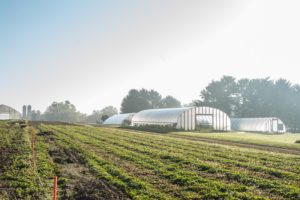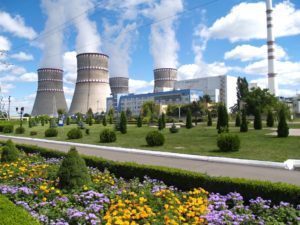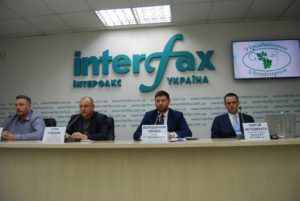
The number of certified operators of organic production in Ukraine in 2018, according to preliminary data, increased to 588 from 504 compared with 2017, the relevant data are contained in the presentation of the Organic Ukraine public organization at the third international congress Organic Ukraine.
According to the presentation, out of the total number of operators there are 324 crop producers and 16 livestock producers.
“The area under organic farming will decrease by the end of 2018. The number of producers is increasing, while the area is decreasing. Large farms find it difficult to cope with the challenges associated with organic production. Some producers refuse to grow organic goods: they cannot fulfill the conditions, others are decertified,” Serhiy Halashevsky, the director of the Organic Standard certification authority, said.
According to him, the area under organic production will slightly reduce due to the fact that “the areas are reduced due to decertification and simultaneously the number of new producers who have passed the transition period and received the status of organic is increasing.”

JSC Ukrzaliznytsia has paid off the first part of loan participation notes (LPN, eurobonds) in the amount of $150 million and paid the coupon on them, the company has reported on its website.
Ukrzaliznytsia Board Chairman Yevhen Kravtsov said that a loan for refinancing of the debt was raised on the domestic market. Oschadbank and the State Agency for Infrastructure Projects of Ukraine provided the funds.
“The funds were borrowed in the national and foreign currencies, and the currency-pegged liabilities were met. This additionally cut the potential risks for seeing exchange rate losses,” Kravtsov said.
He said that the payment on the bonds in due time again confirms support of the railway sector by the state and financial stability of Ukrzaliznytsia. It also shows to creditors that the state and company have a responsible attitude to servicing own debts.
As reported, Ukrzaliznytsia in May 2013 placed its debut $500 million eurobond issue with a maturity period of five years through the specially created company Shortline Plc.
Eurobonds of Ukrzaliznytsia, together with the securities of Oschadbank and Ukreximbank, were included in the restructuring of the external sovereign and government guaranteed debt initiated by the Ministry of Finance of Ukraine after the IMF approved a new four-year extended fund facility for Ukraine for $17.5 billion.
In March 2016, Ukrzaliznytsia restructured its eurobonds, prolonging the maturity until September 15, 2021 and raising the interest rate from 9.5% to 9.875% per annum. Also, the repayment schedule for the principal loan amount was changed: 60% should be paid in 2019, 20% in 2020 and 20% in 2021.
At the end of 2018, the supervisory board of Ukrzaliznytsia, together with the Ministry of Infrastructure and the Verkhovna Rada Committee on Transport, stated the need to restructure Ukrzaliznytsia’s debt obligations in order to increase the borrowings pegged to the national currency.
In April 2018, Ukrzaliznytsia announced that it was considering the possibility of implementing a new issue of eurobonds pegged to the hryvnia in the amount of UAH 500 million to UAH 1 billion for a period of three to five years before the end of this year, and also received coordination by the ministries to issue domestic bonds with a total amount of UAH 2 billion.

Coke plants of Ukraine imported 1.87 million tonnes of coking coal and coal concentrate for coking in January and February 2019, which is 3% more than in January and February 2018.
According to the Ukrmetallurgprom association, in February 2019, 870,000 tonnes was imported (86% compared with January 2019).
Ukrainian coal in the amount of 450,000 was shipped to the plants in January-February 2019, which is 10% less on January-February 2018. In February, 200 tonnes were delivered (86% compared with January).
In January-February 2019, Ukrainian coke plants received 2.32 million tonnes of coking coal, which is 2% more compared with January-February 2018. The share of imported coal was 80.6%. In February 2019, 1.07 million tonnes of coking coal was shipped (85% compared with January 2019).
Steel enterprises in Ukraine received 1.54 million tonnes of coke in January-February 2019 (91% compared with January-February 2018), including 1.43 million tonnes of Ukrainian coke and 0.11 million imported coke. The share of imported coke of total supplies was 7.2%.
In February 2019, steel enterprises received 727,000 tonnes of coke (89% compared with January), including 677,000 tonnes of Ukrainian coke and 50,000 tonnes of imported coke.

National Nuclear Generating Company Energoatom increased power generation by 10% year-on-year in January and February 2019, to 15.989 billion kWh, the company has said.
The electricity generation target was met by 100.5%.
Electricity sales totaled 15.098 billion kWh compared to 13.722 billion kWh in January and February 2018. Energoatom’s share of total electricity sold to Energomarket state enterprise was 55.8%, and the share of total electricity generation in the country was 54.2%.
The company sold electricity worth UAH 10.4 billion (including VAT) on the wholesale power market, which is 15.7% more than in January and February 2018.
Capital investment totaled UAH 808.2 million compared with UAH 1.479 billion in January and February 2018.
The company sent UAH 2.275 billion to the budgets of all levels and insurance payments came to UAH 363.2 million.
Capacity use was 81.4%, which was 7.4 p.p. more than a year previously.
Three malfunctions were recorded at Ukrainian nuclear power plants in the reporting period, one less than a year ago. Radiation levels at Ukrainian NPPs were normal over the period.
Energoatom is the operator of all four Ukrainian-based operating nuclear power plants, which have 15 VVER reactors with an overall generating capacity of 13.835 gigawatts.
The company also operates the Tashlyk hydroelectric pumped storage power plant with a 302 MW capacity in a turbine mode and Oleksandrivka hydropower plant with an 11.5 MW capacity.

The Ukrsadvinprom public association has called on the Agricultural Policy and Food Ministry of Ukraine to adapt the state-funded program compensating expenses on construction of fruit refrigerators to berry farms, member of the association and founder of Yahidky company producing organic blueberries Oleh Naumenko has said.
“In 2018, we received compensation for planting material in full. However, officials have a misunderstanding of some simple questions… We ask the Agricultural Policy and Food Ministry to hear us and reconsider the program on refrigerators in the direction of adapting it to berry farms,” he said at a press conference at Interfax-Ukraine on Thursday.
According to representatives of Ukrsadvinprom, the criterion of the capacity of this equipment for compensation from the national budget from 500 tonnes, as provided for by the current government decree, should be relaxed to 50-100 tonnes.
“In addition to laying new plantings, you need to think about the storage of fruits and berries. However, refrigeration equipment with a capacity of 500 tonnes and more is used by large enterprises – producers of apples. And for blueberries, currants, blackberries, smaller capacity refrigerators are required,” Director of Horticulture Institute under the National Academy of Agrarian Sciences of Ukraine Ihor Hrynyk said.
Head of Uksadvinprom Volodymyr Pechko said that in 2019, about 15 enterprises are candidates to have compensation for the construction of refrigeration equipment under current requirements.
According to him, if the criteria for equipment are relaxed, about 80 export-oriented enterprises will be eligible for compensation under this state-funded program.
“This will support not only large fruit producers, but also small farms. It will also provide an opportunity of storing berry products for about three months and exporting them not only to neighboring countries, but also to China, as well as to Chile and Argentina,” Pechko added.

National Energy Company Ukrenergo as part of the modernization of the power grid installed the first interactive dispatch board made by Belgium’s Barco. The board will be launched on March 18, the press service of the company has reported. The board, combined with the operational information complex of the automated dispatch control system, transmits information about the state of the main power equipment of the Western energy system round-the-clock in a multi-window mode.
The equipment allows quickly and conveniently displaying the necessary information on any screen window – separate power hubs, diagrams and schemes. In the coming years, it is planned that the dispatch boards will be updated in all other regional dispatch centers.
The project, worth UAH 17.5 million, was implemented as part of the investment program of the Western energy system for 2018.
Ukrenergo operates trunk and interstate transmission lines, as well as centralized dispatching of the country’s integrated power grids. It is a state-owned enterprise managed by Ukraine’s Finance Ministry. The company will be soon reorganized into a private joint-stock company.